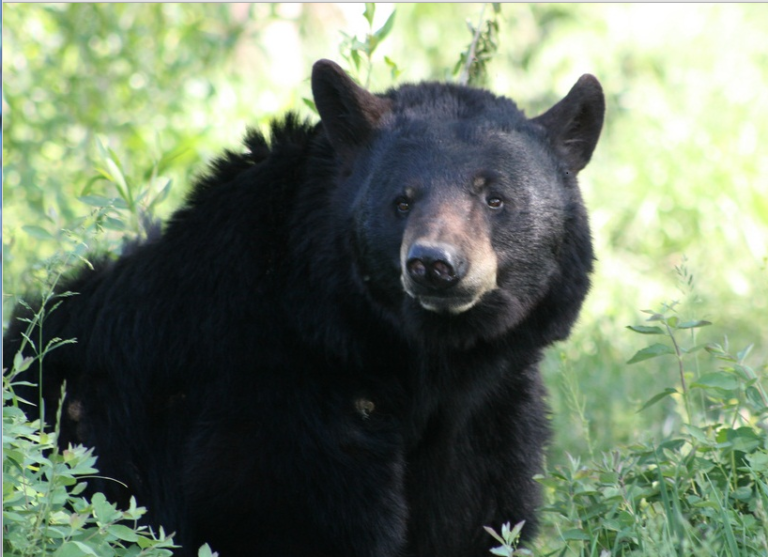Do not feed the bears. The well-known sign is posted in Yellowstone National Park. But it also applies right here in Western North Carolina. Yet you may not even realize you are doing it.
Bird feeders and unattended outdoor trashcans are the biggest culprit. People who intentionally leave out corn or birdseed for bears do the animals and their neighbors a disservice. Unfortunately, feeding bears can cause them to lose their fear of humans and become pests.
Wildlife biologists say Western North Carolina’s bear population is the highest it has been in 100 years. Some 6,500 to 7,500 bears call the mountains home. Coastal Carolina has the largest bear population with 11.500 to 13,000 bears. Altogether some 20,000 black bears roam the Tar Heel state.
Problem bears are rare in the City of Asheville.
“We get calls weekly, somewhere from a resident with a bear on their property to bears tearing down bird feeders,” said NC Wildlife officer Shawn Martin. “They are wild animals and they’re going to do that. The easiest way to solve the problem is to remove the food source.”
So roll that trashcan into your garage, if you have one. Put it outside only on the morning of your collection day.
Pet food can be another source of attraction. Feed Fido or Kitty inside if your property is subject to the occasional wandering bear.
As for bee hives, which have become more popular with home gardeners, deter a bear with an electric fence.
Bear hotspots in the City include areas that back up to watersheds or mountains. Haw Creek and the Grove Park neighborhoods are two areas frequented by bears.
What should you do if a bear comes to visit? Give it space. Go indoors and the bear will probably move on, said Martin.
Sue McMullen, supervisor with Asheville Police Department Animal Services Division, has occasionally been called out to disperse crowds around a bear in a tree downtown. “Most the time we are trying to make sure people are staying away from the bear,” she said. “Usually a bear will come down a tree but it’s often at evening when it’s quieter.”
With increasing development, people are encroaching on bears’ original territory. There was a heavy mast crop of acorns last fall and the well-fed mama bears have several babies this year. They are out teaching their cubs how to find food.
A five-year study kicked off in spring 2014 by the NC Wildlife Resources Commission and NC State University has already found our urban bears inhabit every section of the City of Asheville. The good news is we can coexist. Respect the bears, give them space. And please….do not feed the bears, even inadvertently.
If you do end up with a problem bear, call NC Wildlife Resources at (800) 662-7137.
